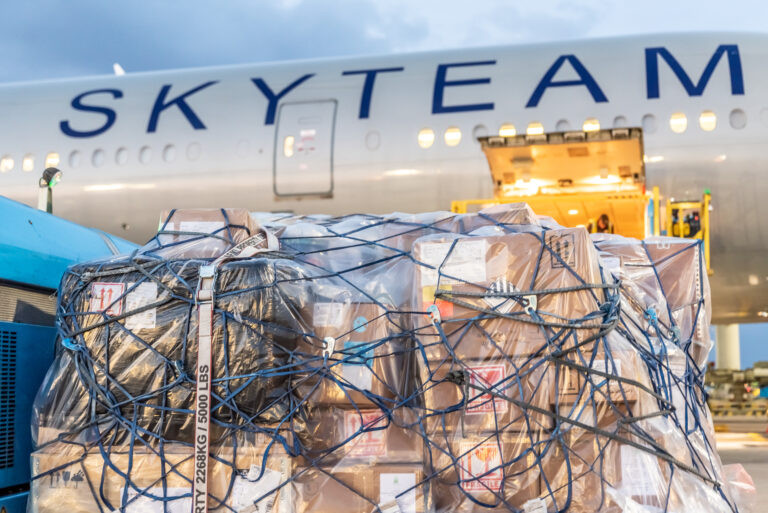The cargo industry is always subject to change. The sector faced its biggest crisis ever, Covid, where air cargo proved a crucial asset that helped airlines mitigate the dramatic drop in passenger revenues.
Right now, it’s a very challenging market, with passenger capacity growing rapidly after the pandemic, resulting in overcapacity for cargo. Elsewhere in the sector, other areas like digitalisation, pharma, e-commerce are evolving rapidly.
“As an alliance, we have the capabilities to respond well to the ever-changing environment and work together on initiatives,” John Engelaan, SkyTeam Cargo’s Vice President of Cargo, declared.
“We inform each other what challenges we face and how we deal with them, and we support each other if needed. Obviously, connecting our networks is vital to fill white spots and offer more routing options, but at the same time, it is complex; accessing each other’s networks still requires a lot of work to make this easy for our customers.
“Right now, SkyTeam Cargo has 3,500 aircraft operating to 850 destinations globally – the biggest air cargo alliance in the world.
“At the same time, we remain competitors, so we need to comply with strict competition law rules. However, exchanging ideas of legitimate interest and enabling cross-pollination of best practices is inspiring and contagious.”
Shifting segments
Offering both tailor-made and standardised solutions under one unified brand enables SkyTeam to adapt to market volatility and move quickly. It’s well-established and clearly branded SkyTeam products are its foundation, bolstered by exploring where they can improve and fine-tune other products.
“Cargo is a business-to-business market, and it proved to be very beneficial to have a unified branded portfolio like ours – something we’ve offered for more than 20 years – because it makes shipping cargo much more straightforward for our customers,” Engelaan outlined.
SkyTeam Cargo has seen growth very clearly and rapidly across the Asia Pacific region. Next to boosting the e-commerce industry, the alliance with two major players – China Cargo Airlines and Korean Air Cargo – in the region has seen centres of industry shifting to other countries in the Far East.
“We all feel the sense of urgency here, so our focus remains on these segments; we keep a close eye on developments, and we keep investing in equipment, warehousing, and tooling to ensure we’re ready to meet customers’ evolving needs,” he added.
“We look forward to bringing the industry up to speed on the latest SkyTeam Cargo developments in Shanghai and we will have cargo representatives available throughout Air Cargo China from the SkyTeam Cargo Alliance members who can expand on all elements of our operations.”




